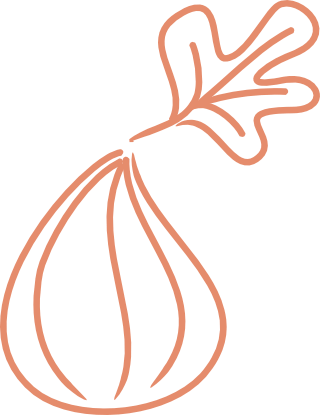The next morning, Jesus returned to the city with his disciples after spending the night in nearby Bethany on the slope of the Mount of Olives. Hungry and seeing a fig tree by the side of the road, Jesus looked for figs among the leaves, but found none. “May no fruit ever come from you again!” he said, and the tree withered. The disciples were amazed by his power, but also probably a little unnerved. They were used to Jesus healing people, not cursing things.
If there were leaves, there should have been fruit. But the tree was barren—like many religious leaders who looked good on the outside, but were producing no spiritual fruit. They were acting like something they were not, misusing their position and power, and not truly seeking God. Jesus withering the fig tree was a warning about putting on appearances and insincerity, and a way for Jesus to show the power of faithful prayer—that if the disciples did not doubt, they, too, could pray for anything within God’s will. Jesus also made sure to add, “Whenever you stand praying, forgive, if you have anything against someone, so that your father in heaven may also forgive you your trespasses.”
Jesus was teaching his disciples to rely on their faith, preparing them. He knew that soon, he would not be there and they would need to be strong and sincere to spread the Gospel across all nations.
Later that day in Jerusalem, the religious leaders who should have been the first ones to bear fruit for God, instead spent their time questioning Jesus’ authority to teach in the temple. More concerned with maintaining their power, refusing to see who Jesus really was, they tried to trap him, but he outsmarted them with questions of his own that they couldn’t answer.
Jesus then offered a parable that showed his authority: a landowner who planted a vineyard, leased it to tenants. At harvesttime, the owner sent his slaves to collect his produce, but the tenants seized the slaves, beat one, killed one, and stoned another. Again the owner sent slaves, and the same happened. Finally, he sent his son, thinking they would respect him. But they killed his son, too. Jesus asked the religious leaders, “What will the owner of the vineyard do? He will come and destroy the tenants and give the vineyard to others.”
“Therefore I tell you, the kingdom of God will be taken away from you and given to a people that produces the fruits of the kingdom.”
Jesus
In the Old Testament, Israel was often referred to as a vineyard. In this parable, God was the owner, the tenants were the religious leaders, and the slaves were the prophets. The son was Jesus and “the others” were the Gentiles. In telling this parable, Jesus was letting the religious leaders know that he knew of their plot to kill him, exposing their true motives.
When the religious leaders realized he viewed them as the tenants, they were enraged. But Jesus wasn’t intimidated by their anger. In fact, he rebuked them further. “Therefore I tell you, the kingdom of God will be taken away from you and given to a people that produces the fruits of the kingdom.” Once again, if not for the crowds supporting Jesus, they would have arrested him.
In a few days, at the Last Supper, Jesus would build on this same imagery. “I am the true vine, and my Father is the gardener. He cuts off every branch in me that bears no fruit, while every branch that does bear fruit he prunes so that it will be even more fruitful.” This was not only for Israel, but for the Gentiles, “the others” whose belief and faith would graft them into the vine.
It probably wasn’t a coincidence that both the vine and the fig tree that Jesus mentioned were grown from roots or cuttings of a more mature plant. When we put our trust in God, our source, allowing him to grow us, we can bear the fruit we were always intended to. Jesus gives us, like the disciples, this directive for our lives: bear fruit for God’s kingdom—fruit that will last.
